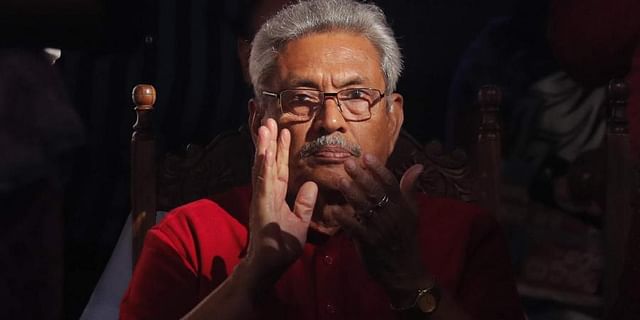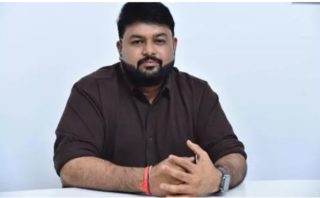 COLOMBO: The UN rights body on Monday expressed concern on the state of economic emergency declared in Sri Lanka amid a deepening recession and noted that it may “further expand the role of the military in civilian functions” in the island nation.
COLOMBO: The UN rights body on Monday expressed concern on the state of economic emergency declared in Sri Lanka amid a deepening recession and noted that it may “further expand the role of the military in civilian functions” in the island nation.
Sri Lankan President Gotabaya Rajapaksa on August 31 declared an economic emergency to contain soaring inflation after a steep fall in the value of the country’s currency caused a spike in food prices. The action is aimed at preventing hoarding of essential items.
The government has appointed a former Sri Lankan Army general as commissioner of essential services, who will have the power to seize food stocks held by traders and retailers and regulate their prices.
The military will oversee the action which gives power to officials to ensure that essential items, including rice and sugar, are sold at government-guaranteed prices or prices based on import costs at customs and prevent hiding of stocks.
Giving an oral update on Lanka’s human rights situation in Geneva, the United Nations High Commissioner for Human Rights Michelle Bachelet said, “The current social, economic and governance challenges faced by Sri Lanka indicate the corrosive impact that militarisation and the lack of accountability continue to have on fundamental rights, civic space, democratic institutions, social cohesion and sustainable development.”
Adding that her office will closely monitor the application of emergency provisions, Bachelet said, “A new state of emergency was declared in Sri Lanka on August 30 with the stated aim of ensuring food security and price controls, amid deepening recession. The emergency regulations are very broad and may further expand the role of the military in civilian functions.”
The emergency move followed sharp price rises for sugar, rice, onions and potatoes, while long queues have formed outside stores because of shortages of milk powder, kerosene oil and cooking gas.
The wide-ranging measure is also aimed at recovering credit owed to state banks by importers.
In recent weeks, the prices of most essential goods have been skyrocketing due to the falling local currency and high global market prices driven by the COVID-19 pandemic.
The government blames traders for hoarding.
The Sri Lankan rupee has fallen by 7.5 per cent against the US dollar this year.
The Central Bank of Sri Lanka recently increased interest rates in a bid to shore up the local currency.
Addressing the 48th session of the UNHCR, Bachelet also called for a timeline set by the Lankan to repeal the Prevention of Terrorism Act (PTA), expressing her deep concern about the continued use of the draconian law to arrest and detain people.
“Lawyer Hejaaz Hizbullah is under detention for 16 months under the Act (PTA) without credible evidence presented before a court. Likewise, Ahnaf Jazeem, a teacher and poet, has been detained without charge since May 2020. I urge an immediate moratorium on the use of the Act, and that a clear timeline be set for its comprehensive review or repeal,” she said.
Prominent human rights lawyer and activist Hizbullah was arrested by Lankan security forces under PTA on April 14 last year for his alleged involvement in the 2019 Easter suicide bombings that killed 270 people, including 11 Indians.
Similarly, 26-year-old Jazeem was detained since May 16 last year under the Act against the backdrop of the Easter attacks without charges or any credible evidence being presented to a court.
“Despite various inquiries, the victims of the Easter Sunday bombings in 2019 and religious leaders continue to call urgently for truth and justice, and a full account of the circumstances that permitted those attacks,” Bachelet noted in her update to the UNHRC.
“Regrettably, surveillance, intimidation and judicial harassment of human rights defenders, journalists, and families of the disappeared have not only continued, but has broadened to a wider spectrum of students, academics, medical professionals and religious leaders critical of government policies,” she said.
Nine suicide bombers, belonging to local Islamist extremist group National Thawheed Jamaat linked to ISIS, carried out a series of blasts that tore through three Catholic churches and as many luxury hotels in Lanka, killing over 270 people and injuring more than 500 people on April 21, 2019.
Bachelet also expressed concern over developments in the judicial proceedings in a number of emblematic human rights cases in Lanka, including the Attorney General’s decision of not proceeding with charges against former Navy commander Wasantha Karannagoda in the case of the enforced disappearances of 11 men in 2008 and 2009.
She said the recent pardoning of former member of parliament Duminda Silva, who was convicted for killing a politician in 2011, also risks eroding confidence in the rule of law and judicial process.
The UNHRC chief said deaths in police custody and in police encounters with alleged drug criminal gangs, “as well as continuing reports of torture and ill-treatment by law enforcement officials” in Lanka is also a matter of concern.
The 48th session of the UNHRC got underway on Monday with Sri Lanka on its agenda.
The UN rights chief was presenting an update on her annual report, while the general debate on her update is due on Tuesday and will conclude on Wednesday.
























